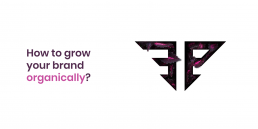Organic Marketing
Organic Marketing refers to the act of getting your customers to come to you naturally over time, rather than ‘artificially’ via paid links or boosted posts. Organic marketing is all about generating results through your creativity and time. Anything that is not paid for, can essentially be classed as organic advertising.
It includes any direct, instinctive marketing apart from paid marketing tools. Paid tools, such as artificial paid link-ads are considered inorganic marketing.
If you have been putting your blood, sweat and tears into revising and reinventing your user interface, maintaining Twitter and Facebook accounts, building your email lists, and improving your SEO, you’re doing it already.
It is investing time and energy in developing an organic marketing strategy is one of the most important steps you can take to ensure the long-term success of your business’s digital presence. Businesses design and run organic marketing campaigns for years.
It is one of the most effective ways to build an authentic audience and fan base for your product or service. It takes more time, consistency, and patience to pull off, but it is worth the extra effort.
Why Organic Marketing?
While organic marketing refers to tools and approaches that do not rely on paid marketing strategies, let us be clear–no time investment is free. The opportunity cost we have discussed in our reminds us of the importance of carefully considering the true investment costs of your efforts.
Ground-up marketing works because it is work. There is no substitute for careful attention to your website’s content and careful curation of your business’s social media presence.
Paid ads can be an effective tool within a high-budget marketing strategy, but if the consumer arrives at your website and does not find what they are looking for, how is that investment working for you? It is not.
If a sponsored tweet draws them in but a discrepancy in expectation chases them away, what is the benefit there? It is absent. Organic marketing is a long process, but ultimately it will yield more authentic customer engagement and more accurate SEO.
HOW IS ORGANIC MARKETING DIFFERENT?
Organic marketing is all about generating results through your creativity and time. Anything that is not paid for, can essentially be classed as organic advertising.
- Gaining increased Brand Awareness via Social Media is all about understanding the needs and concerns of your buyer personas and what they will engage with.
- Once this is achieved, you then must get creative! Create the appropriate content (images, gifs, blogs, videos etc) and publish it on all the relevant online platforms (e.g. YouTube, Social Media, Google etc.) where and when your target audience is likely to hang out.
- Organic search traffic means you generate clicks from search engines such as Google without having to pay for them. You do this by making sure that your website has great UX on all devices, has all “complete”, relevant content and has lots of quality inbound links from other trusted websites.
- As you can probably tell, this all takes a lot of time, creativity, and know-how.
PAID ADVERTISING – INORGANIC MARKETING
This one seems a bit clearer than organic, this is clearly defined by whether you have had to pay a publisher for your content to appear, whether that be Facebook, Google etc.
Paid advertisements on Google and Facebook tend to sit alongside organic results and purposely appear in a very similar format to organic results and posts. Either see them at the top of search engines or in your feed on Social Media, often with tiny text stating Ad or Sponsored.
Basically, Google will show your paid advert based on the search terms you define and the amount of money you are prepared to pay per click.
In terms of social media, you will be seeing certain ads because the advertiser deems you to be their target audience. This may be defined by your age, sex, occupation, behaviour, interests etc.
You may think this is easier than trying to generate results organically, however it still takes some serious level of experience to make sure your ad campaigns run profitably. Although these ad platforms are very intelligent, they are also complex.
PROS AND CONS
The main benefit of organic marketing is the fact it can be implemented by the smallest business with no marketing budget. Typically, companies will use the free features a platform can offer, such as publishing tweets on Twitter to grow a consistent following. The only real investment would be your time and here is the downside, it requires a lot of time
typically, you will need to be spending a few hours per week on social media, same again for blog writing and then again for SEO. On top of this, you will have monthly activities such as email marketing and the analysis of data from Google analytic, Google search control, your social media scheduling tool, email marketing platform etc.
The greatest benefit of paid advertising is the control you have. You can choose what messages are published, who can see it and when. This allows a company to be much more targeted and obtain instant results from their branded messages, which would not necessarily be the case with organic advertising. This, however, is out of reach for a lot of small businesses and even those that do have the budget can easily waste it by not understanding the workings of Google ads or Facebook ads fully.
Unlike organic advertising, which is a long-term plan, paid advertising can reap rewards quickly. As soon as Facebook, Google etc. have your bank card details, your adverts are then intelligently inserted to the search results and social media feeds.
Ideally, it’s best to combine the two, if you require instant results and have the required budget, you may be better off starting the organic strategy with a paid campaign side-by-side until the organic strategy achieves results and therefore less need for paid.
WHICH IS BETTER, PAID OR ORGANIC?
Neither is better. When choosing how you wish to market your brand online, it is not a ‘one or the other’ sort of decision. Organic and paid can work together to create an effective marketing strategy.
Organic SEO is an online marketing strategy made up of smaller sub-strategies, like keyword research and link building, that help your website rank at the top of organic, unpaid search engine results pages.
Paid advertising is amazing because it allows any business, at any stage in their development, to boost their traffic or brand awareness. Your business can then run organic search marketing campaigns in the background which would help improve a more cost-effective presence over time.
The choice is up to you and your business, what suits your situation best. However, even if you do have all the money in the world, we suggest you have a proper Organic Digital Marketing strategy alongside your paid campaign to ensure you build a brand for a long term profitable future.
Organic Marketing Strategies
- Reread and reconsider descriptions and blurbs sprinkled throughout your website. Check for accuracy and update any out-of-date information.
- Evaluate the usefulness and pertinence of pages to which you have hyperlinked. Make sure the links are in working order.
- Craft or improve your email marketing strategy. Consider implementing Calls to Action that engage your readership in immediate ways. This works whether you are selling a product, hosting an event, or delivering new content for your subscribers to enjoy. Set time aside to regularly draft emails–consider making a goal to write a set number of email drafts per week.
- Find and follow complementary businesses on social media. Develop social media relationships with businesses in your area through direct communication. You can also like and share their posts or tweets.
“HEAVY LIFTING” ACTIONS:
- Be aware of trends and use them effectively. Is the whole point of a hashtag eluding you? Spend some time getting to know its usefulness. Familiarize yourself with the purpose of social media tools and consider how their impact can further your reach.
- Complete social media profiles in full. DeMers points out that profiles present the opportunity to share a great deal of information about your company–take full advantage. “Each of these may be an important factor to a potential follower or customer, and most only require a sentence or two to be effective.”
- Make sure your business appears in free online directories.
- Consider finding and joining Twitter chats that pertain to your field to expand your network, gain visibility, and demonstrate your expertise.
Organic marketing is not a quick fix, but it goes the distance in helping you establish, maintain, and grow your brand. Do not rely solely on paid marketing strategies–formulate an action plan and get growing!
WHEN IS IT GOOD TO PAY?
- Your website is live and working- there is no point being top of Google’s searches if your website does not convert, test first.
- Sales Periods – If you have products you would like to get rid of quickly then Google ads are a great route to market.
- New product/brand launch – If nobody knows about your product or brand then social media ads are a great way to get known and Google ads are a great way to target those searching the problems your brand solves.
- You have the budget and have significant short-term sales targets.
- Researching new products or services would be helped by promoting these via Social Media (cheaper) to see what engagement and response it gets before investing more money in stock or Google ads etc.
- Generate a customer base from nothing, to then resell for far more profitably, via Email.
WINNER: IF YOU CAN GENERATE LEADS AND SALES ORGANICALLY, YOU WILL HAVE MASSIVE COST ADVANTAGE OVER YOUR COMPETITORS.


